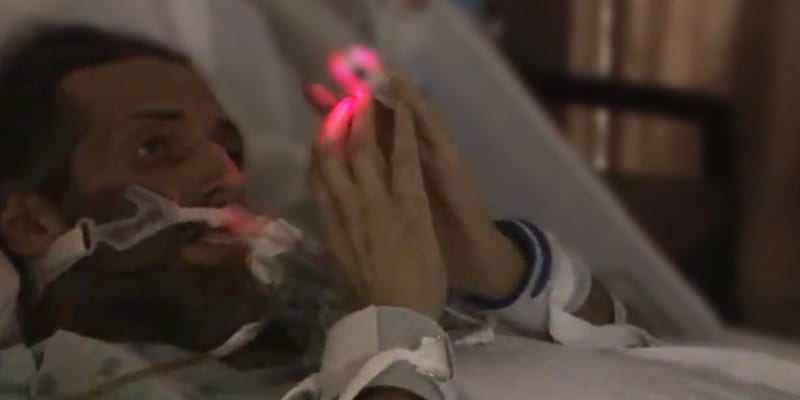On Friday, September 22, in the 189th District Court in Harris County, Judge Bill Burke indicated throughout the hearing that he favored the status quo of the Texas Advance Directives Act, also known as the 10-Day or Futile Care Law. Burke told the lawyers for both parties that they would have time to speak even though he already had made up his mind. Evelyn Kelly, the mother of Chris Dunn who was victimized by the law, was shocked that Judge Burke noted the case was moot since Chris had already died in December of 2015.
Under the 10-Day Law, doctors have the power to withdraw life-sustaining care, even if ending care contradicts the spoken or written directives of the patient and his or her legal surrogate. The doctor’s decision only needs to be approved by a hospital committee, usually comprised of hospital employees and physicians, few of whom have interacted or cared for the patient whose life will be decided by this futility review committee. Once the committee rubberstamps the decision to terminate care, the patient is allotted a mere 10 days to arrange a transfer to another facility. Texas Right to Life General Counsel Emily Cook said, “This statute deprives patients of procedural due process, and hospitalized patients with disabilities are the most at risk. Texas should be adding extra protections to patients, not robbing them of civil liberties.”
Chris’s case gained international media attention after a video of him praying for his life went viral; Houston Methodist unsuccessfully moved to ban this video from the court proceedings though Judge Burke refused to show the video in court. Joe Nixon, attorney for Ms. Kelly, said in response, “I wish [Judge Burke] had seen it. I wished he had watched, because it makes all the difference in this case to know that a man who was alert, awake, communicative, prayerful, was asking that he have his last days. That’s what this case is about.”
But Mr. Nixon’s and Ms. Kelly’s pleadings fell on deaf ears. Judge Burke’s bombastic demeanor, even toward the Office of the Attorney General who submitted an amicus brief supporting Ms. Kelly’s case, signaled that Burke thinks hospitals and health care providers are infallible, despite the hundreds of patients whose lives have been rendered futile under the statutory process. Burke told Austin Nimocks, attorney with the Office of the Attorney General of Texas, “You can speak, but I’m offended that you’re here.” Nimocks adroitly outlined the gaps in due process and how hospitalized patients are not sufficiently protected under current law.
Though bewildered by the judge’s callous theatrics, Ms. Kelly is pressing forward even though she anticipates an adverse ruling from Burke. Evelyn says that she must see this legal challenge all the way to the final step so that other mothers do not have to leave their ailing, dying children to fight a political battle with hospital administrators. She said:
Once [the doctors] decided that Chris’s life wasn’t ‘worth living,’ I had two fights—one to protect Chris and stay by his side and a second political battle with hospital administrators that tore me from Chris’s bedside. If the doctors were so confident that Chris was going to die soon, why rush that? And why not care for him if he was allegedly dying, rather than saddle families with intimidation and legal paperwork? That law makes no sense, offers no compassion for us, and must be changed.
Bioethicists and medical professionals around the country have also expressed their support for Ms. Kelly’s fight to overturn the law that threatened her son in his final days.
Despite the expected ruling, Nixon said after the hearing, “This is a stepping stone along the way of the legal path, and sometimes we climb several steps before we reach a court that will make the tough, correct determination that the statute lacks due process protections for the ailing and vulnerable in Texas hospitals.”
Texas Right to Life is so proud that Ms. Kelly remains optimistic and focused in her pursuit of justice for Chris and the other patients at risk in Texas hospitals. Hundreds of families have sought assistance form Texas Right to Life when navigating the hospital committee process and transfer process for their family members who have been subjected to the Futile Care Law. Evelyn speaks for all these patients and families who refuse to speed the death of their loved ones by acquiescing to the withdrawal of medical treatment under the statutory process and under pressure from hospital administrators and physicians.
Follow Texas Right to Life for updates as the case continues.
Founded in 1973, Texas Right to Life is the oldest and largest Pro-Life organization in Texas. Recognized as the statewide leader of the Pro-Life movement in Texas, Texas Right to Life works through legislation and education to protect the rights of the unborn, persons with disabilities, the sick, the elderly, and the vulnerable through legal, peaceful, and prayerful means.

